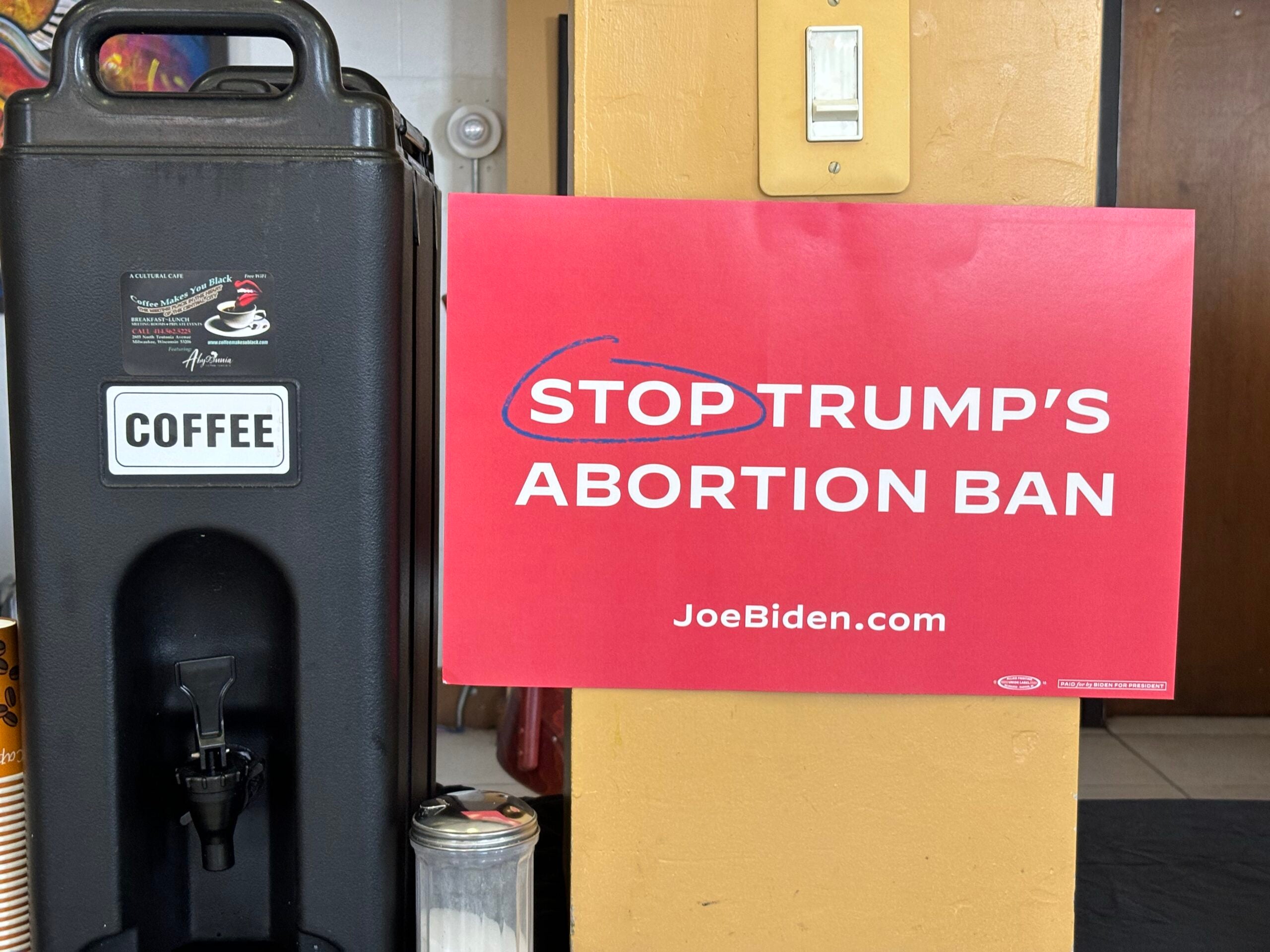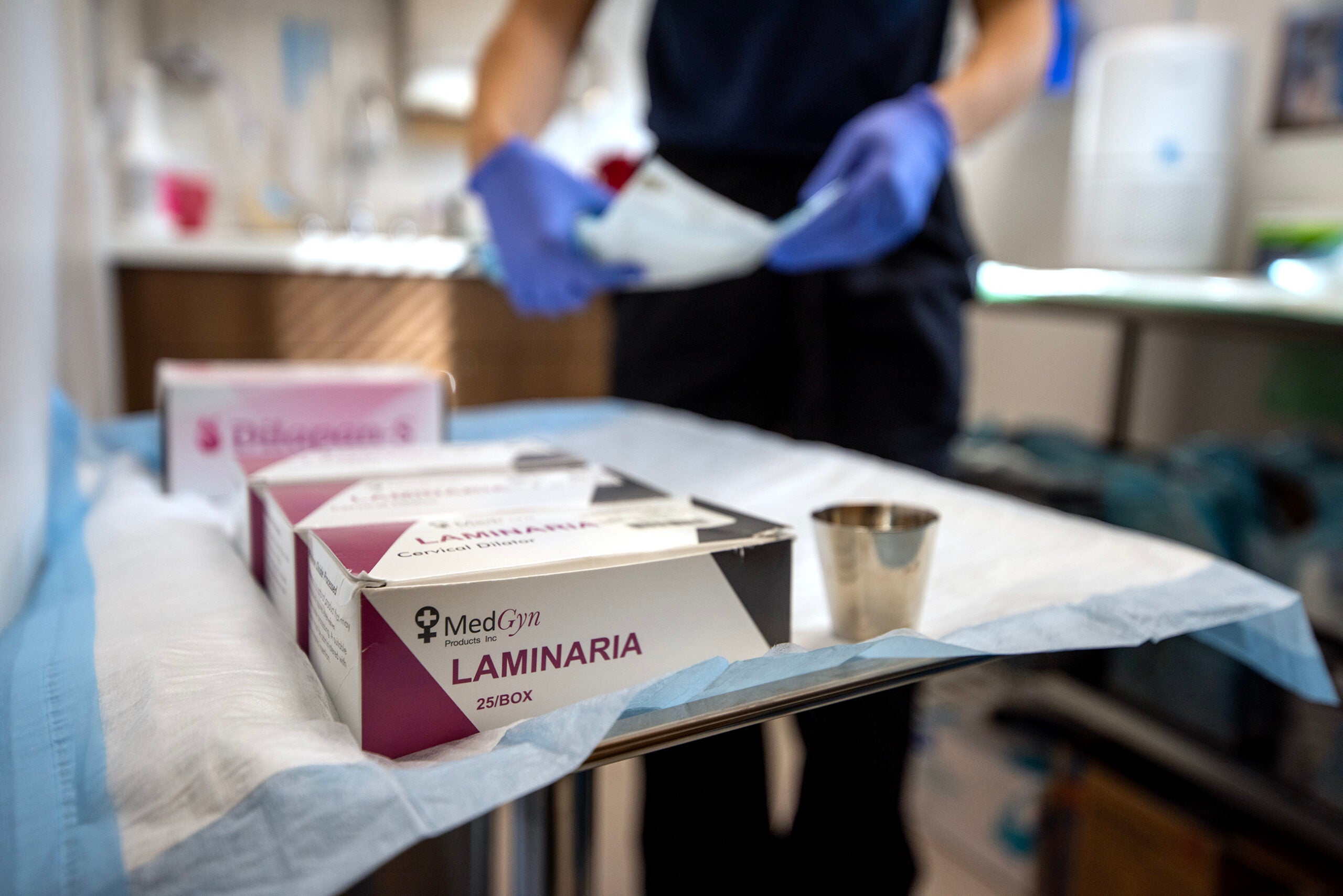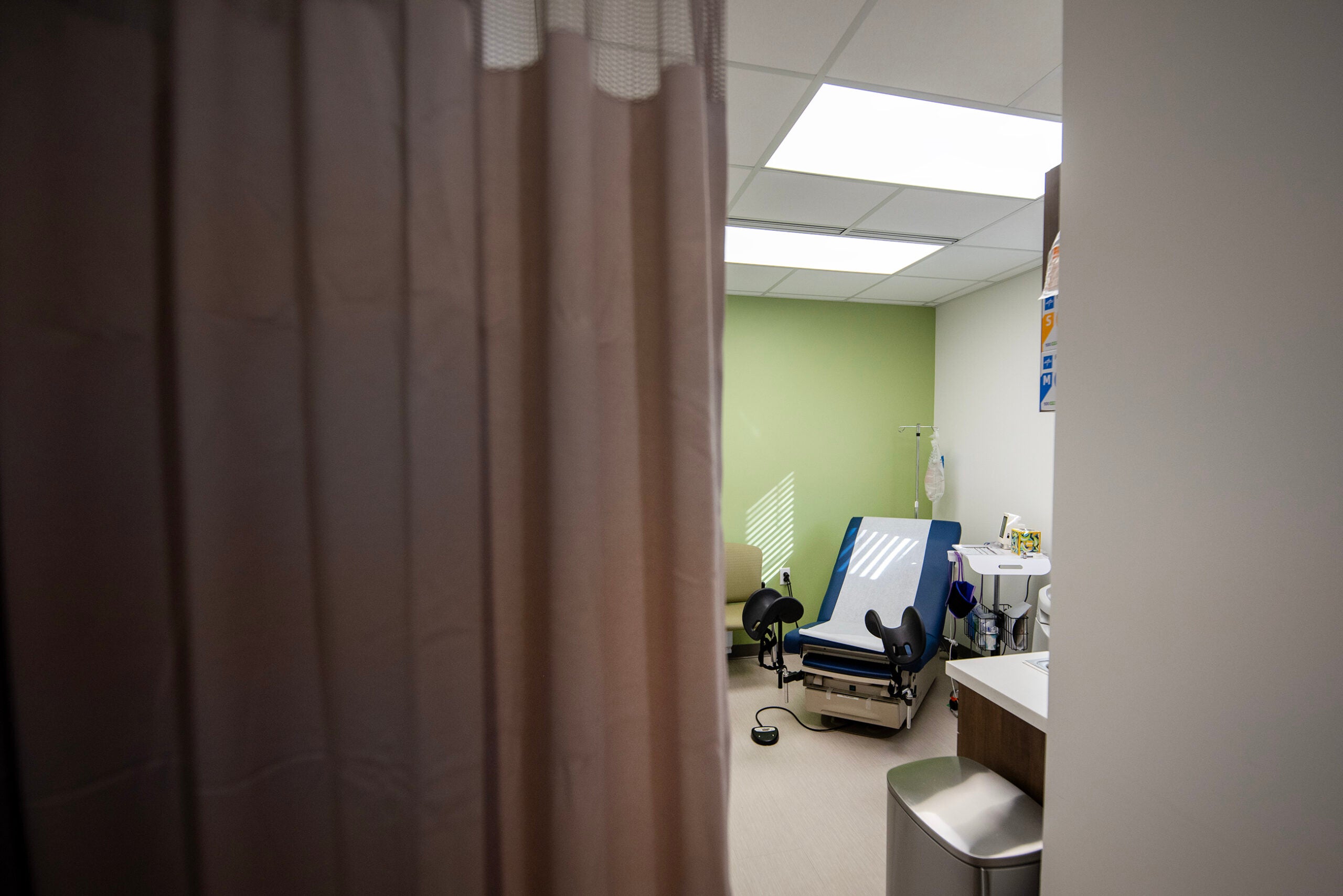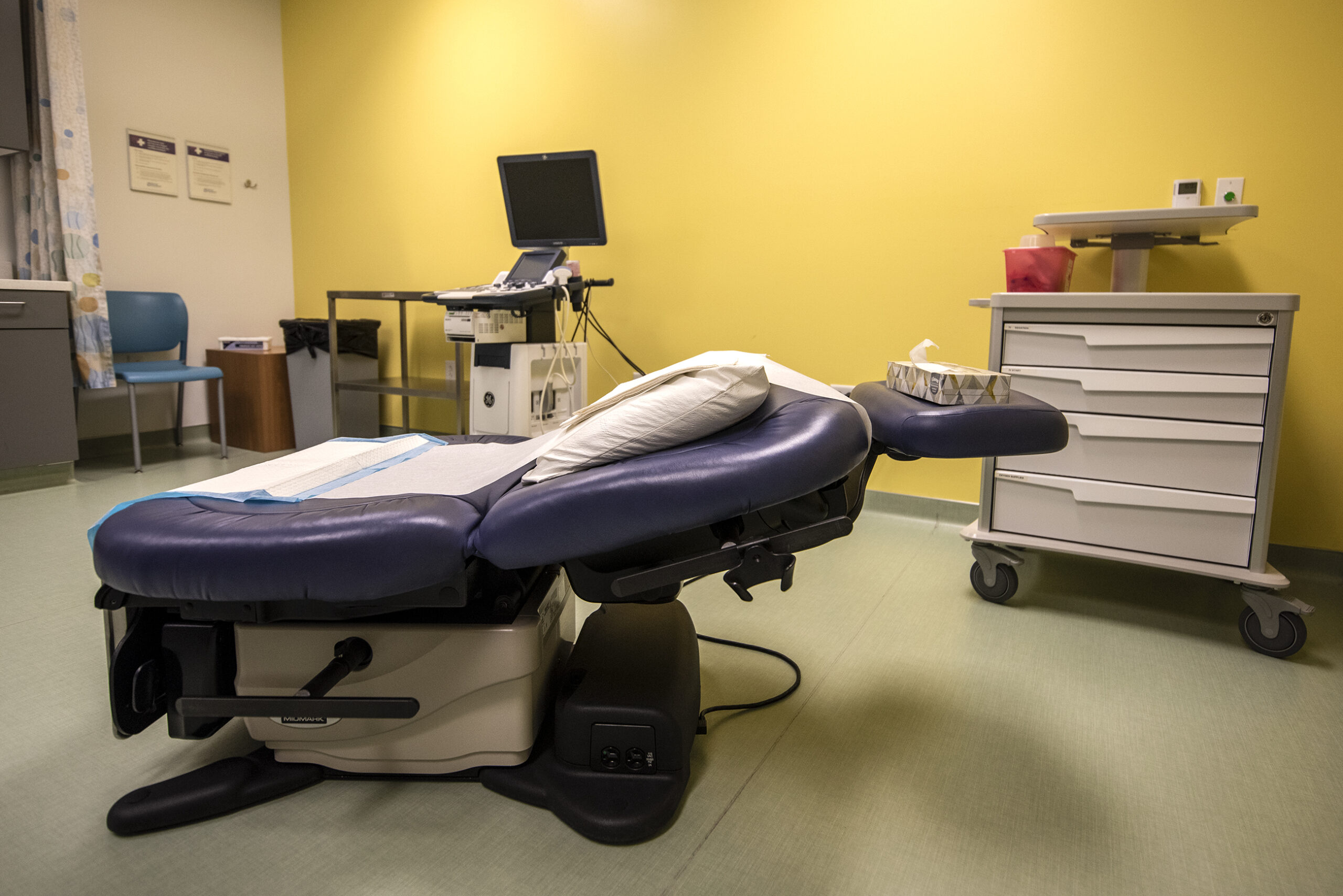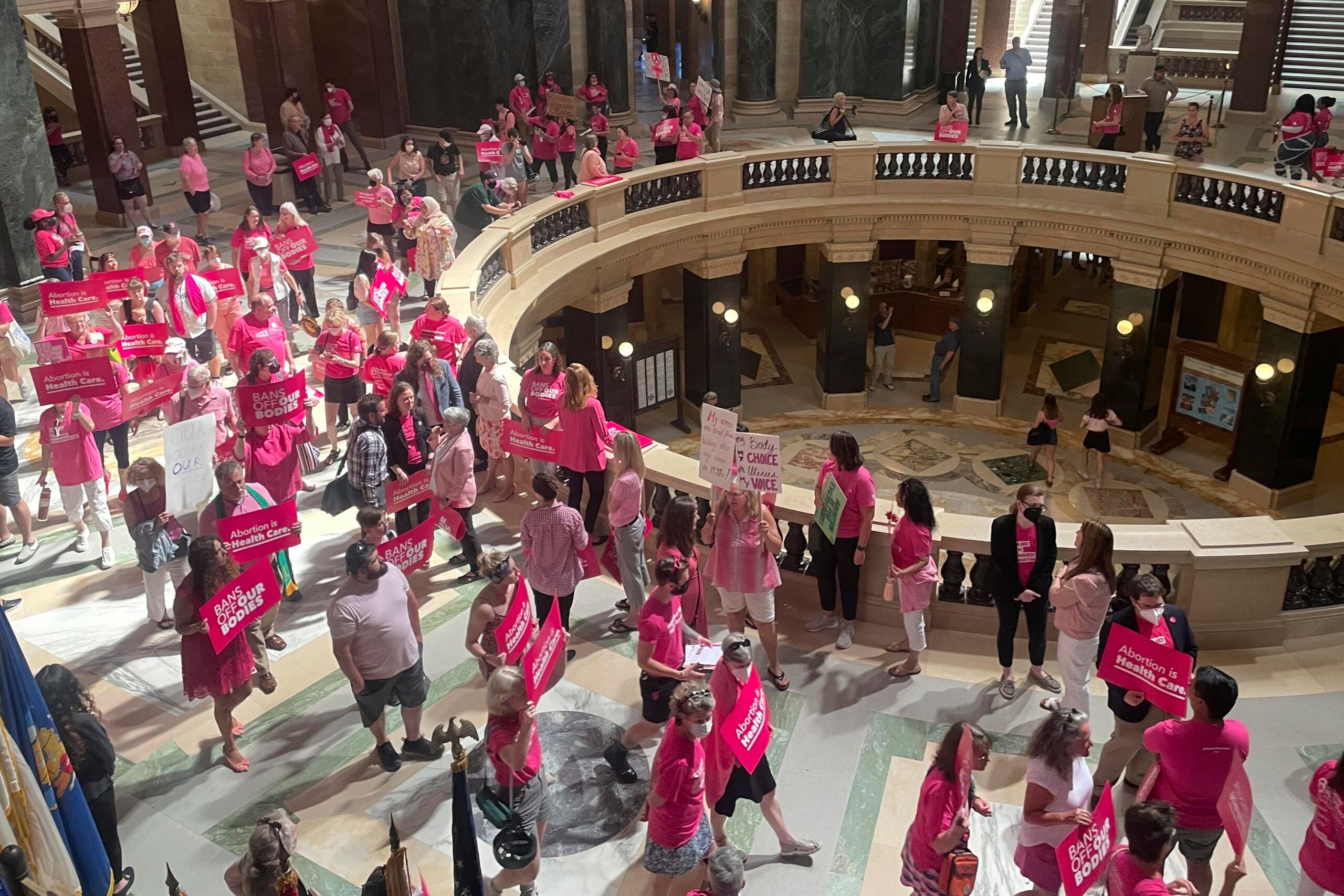Health care professionals, doulas and midwives in Milwaukee said a nationwide abortion ban would mean death and a lack of resources for pregnant people.
They voiced their concerns at an event Tuesday, hosted by President Joe Biden’s campaign to mark Black Maternal Health Week. Abortion access has been a key issue for Democrats since Roe v. Wade was repealed, with hopes it will motivate voters in 2024.
Latoya Newsom-Harris, a reproductive care nurse, said many of her patients are people of color living below the poverty line. She said she’s afraid her patients will be disproportionately affected by restrictions to reproductive care.
News with a little more humanity
WPR’s “Wisconsin Today” newsletter keeps you connected to the state you love without feeling overwhelmed. No paywall. No agenda. No corporate filter.
“They can’t access the care they need,” Newsom-Harris said during the roundtable. “These patients are afraid for what their lives are being dictated to be now instead of being able to make those choices for themselves.”
Disparities in health care
According to the Centers for Disease Control and Prevention, Black women are three times more likely to die from a pregnancy-related cause than white women.
In 2022, provisional data from the CDC showed the infant mortality rate in Wisconsin was 5.78 per 1,000 live births, higher than the national average of 5.6.
The City of Milwaukee Health Department reports at the county level, the percentage of infant mortality, preterm births and infants born with low birthweight all increased between 2015 and 2020. The population most affected in all three areas was non-Hispanic Black people.
“We can teach and teach and teach and teach about these disparities, but the best intervention that we have within the clinical world is to have providers who look like the people who they serve,” said Wisconsin Lt. Gov. Sarah Rodriguez, a Democrat who is also a registered nurse.
Cynthia Jones, founder of Devine Women Foundation Inc., accompanies pregnant patients to doctor’s appointments. She said she sees people of color being treated differently than white women in every aspect of care.
“We get what’s almost like the leftovers,” Cynthia said. “That’s not fair and it’s not right.”
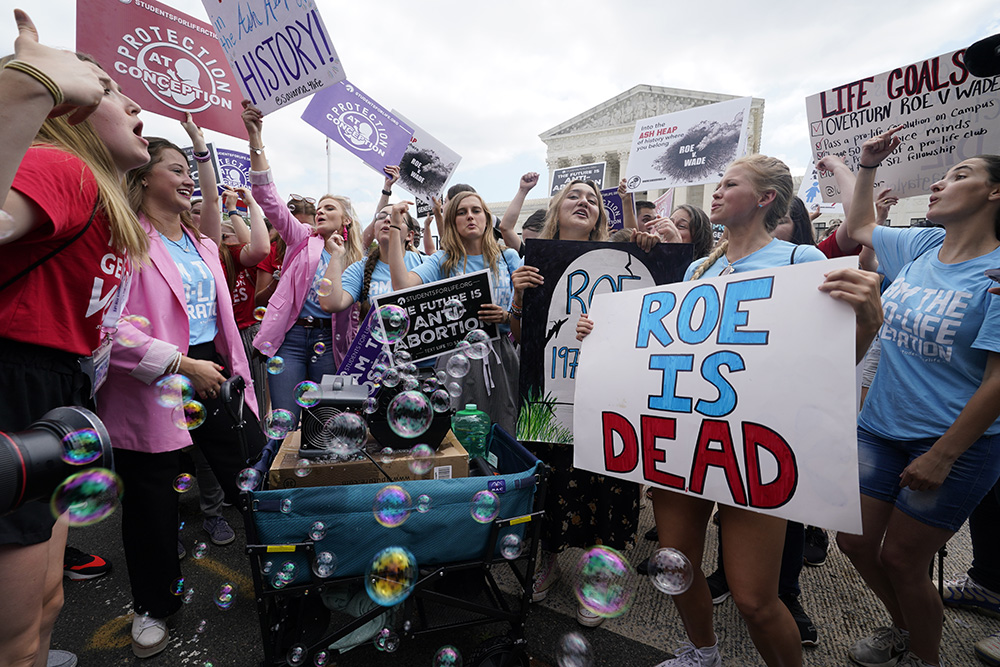
The 2024 election
There was a shared fear among attendees that if former President Donald Trump is elected, access to abortion will be further restricted.
Trump claimed credit for the U.S. Supreme Court’s overturning of Roe v. Wade. But he declined to back a nationwide abortion ban, saying it should be left to the states to determine access.
“My view is now that we have abortion where everybody wanted it from a legal standpoint,” Trump said on April 8. “The states will determine by vote or legislation or perhaps both, and whatever they decide must be the law of the land.”
Democrats argue that leaves the status of abortion in constant jeopardy.
“Because of Donald Trump, my daughter … is going to be growing up in a world with more limbo, and less access to reproductive health care,” Rodriguez said.
According to the University of Wisconsin-Madison Department of Obstetrics and Gynecology, 1 in 3 Wisconsin counties do not have a practicing OB-GYN. And in Wisconsin, there were 8 percent fewer applications for OB-GYN residencies in 2023, according to Wisconsin Health News.
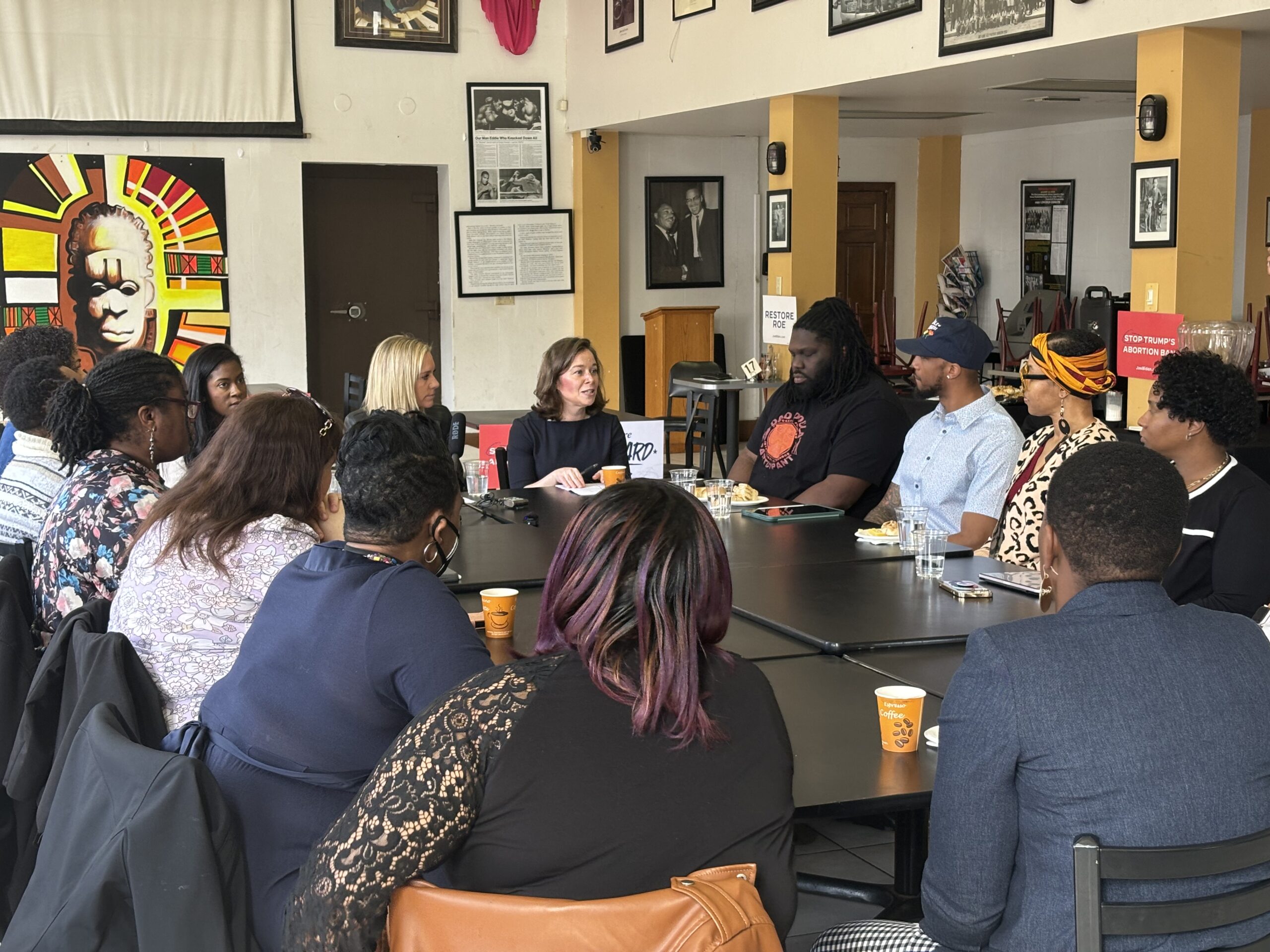
Hazel Jones founded Mattie’s Memory, which helps families who’ve lost a child before or during child birth. She said pregnant people and families are increasingly fearful about privacy and trust in reproductive health care due to recent political discourse.
“That’s sad because that’s how we’re going to lose moms, we’re going to lose our pregnant families because they’re not getting the right health care,” Hazel said.
State of abortion in Wisconsin
Democratic Attorney General Josh Kaul filed a lawsuit in 2022, shortly after the U.S. Supreme Court overturned Roe v. Wade.
The attorney general won at the circuit court level when a Dane County judge said last year that a 19th century Wisconsin law does not prohibit abortions. That ruling has been appealed to the Wisconsin Supreme Court by Sheboygan County District Attorney Joel Urmanski, a Republican who is defending the law.
Should the state Supreme Court take the case, the DOJ told the court it would ask justices to resolve larger constitutional questions.
Wisconsin Public Radio, © Copyright 2025, Board of Regents of the University of Wisconsin System and Wisconsin Educational Communications Board.

